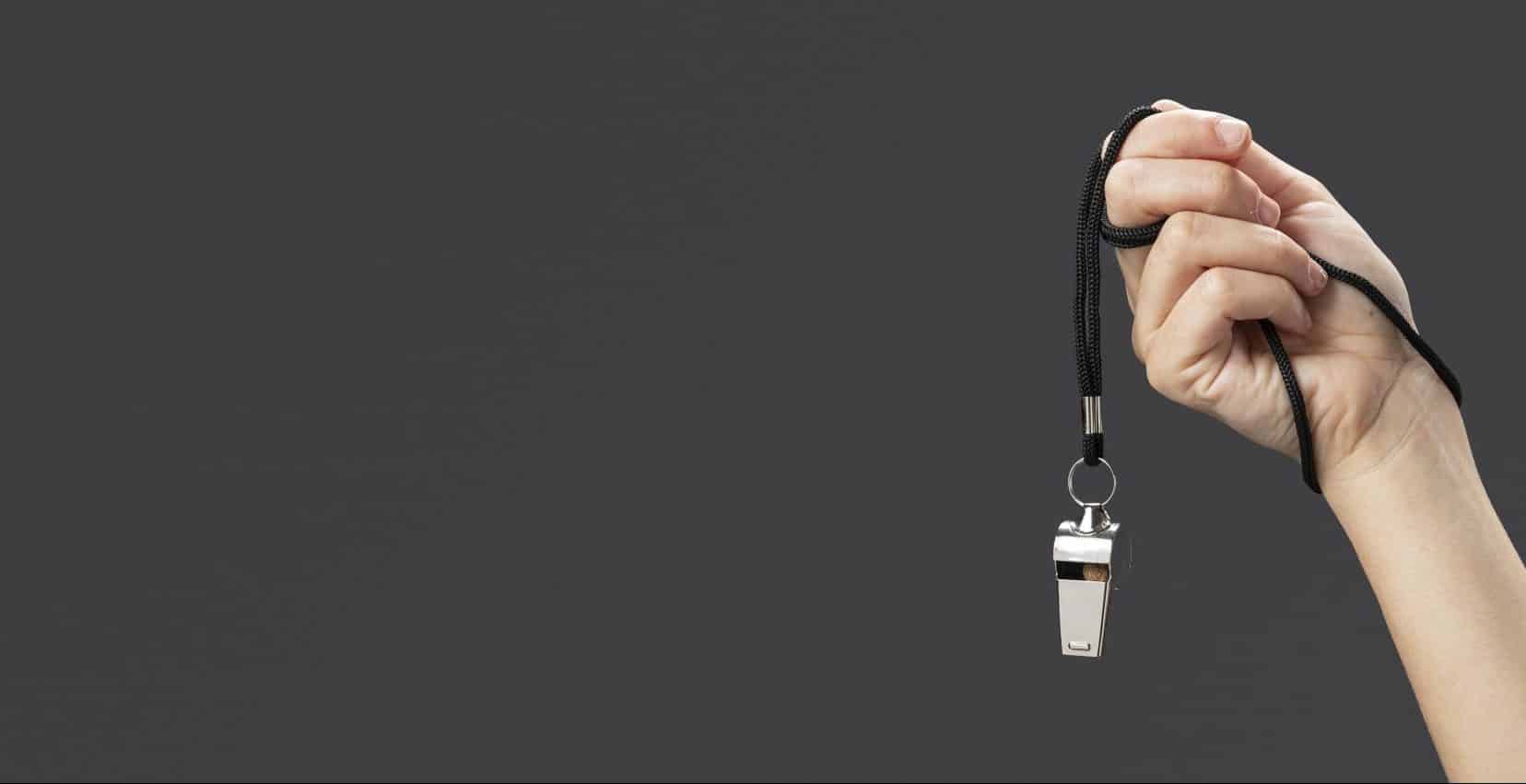Do you know that a Whistleblower scheme is required by law from January 2023? This means that if your company has more than 50 employees, you MUST have a Whistleblower scheme that follows the adopted EU regulations.
But, what does that mean?
You are employed in a company and suddenly discover that laws and regulations are being violated in the company. Now comes the whole dilemma because you know illegal things are going on, but you don’t want to jeopardize your own employment by going to your management with your knowledge. You really don’t want to focus on yourself as a person and as an employee in this scenario. And what if you report something and it doesn’t lead to any action or consequences? What if those involved find out that it was you who reported the whole thing, how will the working environment be in the future? There are really many unknowns in such a situation and the uncertainty will most often (with good reason) lead to you simply keeping your knowledge to yourself and letting things continue.
But what do you do? In its entirety, the Whistleblower scheme is a legal requirement which was introduced on the basis of creating the possibility to report various breaches of rules. It can be criminal offences, breach of confidentiality, misuse of financial resources, theft, fraud, embezzlement, fraud or bribery.
What is a Whistleblower?
According to the Danish Ministry of Justice, a Whistleblower can be defined as follows:
“A person who makes a report or publishes information about violations that the person has obtained access to in connection with that person’s work-related activities.”
And what is meant by violations?
“Actions or omissions that relate to violations of EU law and that are covered by the scope of the whistleblower directive, or that constitute a serious offense or other serious matter.”
Information about violations: ‘Any information, including reasonable suspicion, about actual or potential violations that have occurred or are likely to occur in the organization where the whistleblower works or has worked, or in another organization that the whistleblower is or was in contact with through his work, as if trying to hide such violations.’
Taken directly from the Danish Data Protection Authority’s website regarding the Whistleblower Scheme, here is the specific list of the violations of EU law that you can whistleblow about :
- Public tender
- Financial services
- Products and markets
- Prevention of money laundering and financing of terrorism
- Product safety and compliance
- Transport safety
- Environmental protection
- Radiation protection and nuclear safety
- Food and feed safety
- Animal health and animal welfare
- Public health
- Consumer protection
- Protection of privacy and personal data and security of network and information systems
- Violations that damage the EU’s financial interests
- Violations related to the internal market, including violations of EU competition and state aid rules
The necessary anonymity
A very important part of the whole Whistleblower thing is, of course, anonymity. You can always choose whether you want to report anonymously or with a mention of your name. You just always have to be guaranteed anonymity if that’s the way you want to go. A guarantee of anonymity is therefore essential in the scheme and you, as an employer, must ensure that the scheme is implemented so that it complies with the applicable regulations and always protects the employees involved.
A Whistleblower module in Woba.io
Precisely to make it easier and more transparent for the company to comply with the legislation and gather everything within employee engagement, the Woba.io platform has now been enriched with a Whistleblower module, where it is possible for employees to report directly from the platform – anonymous or non-anonymous. In this way, the legislation is complied with AND it is suddenly quite easy and safe for the employees to report the specific violations.
Learn more about Woba’s whistleblower tool









